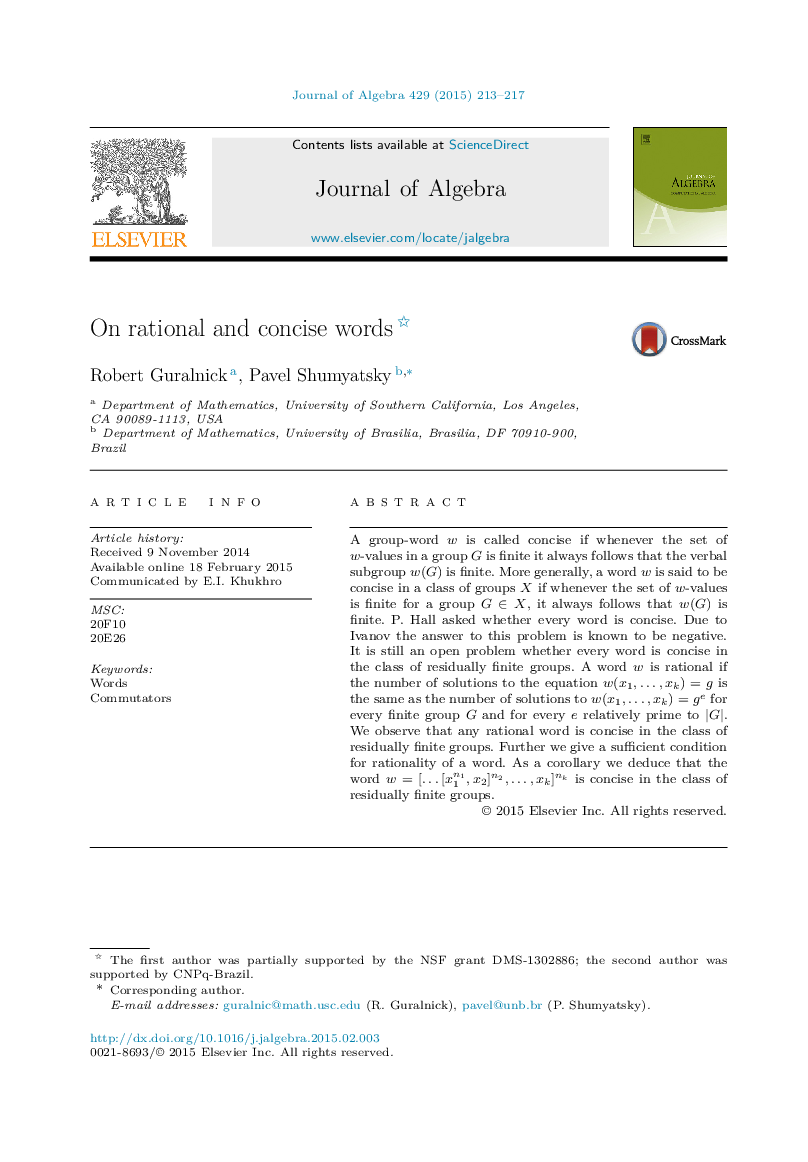| Article ID | Journal | Published Year | Pages | File Type |
|---|---|---|---|---|
| 4584485 | Journal of Algebra | 2015 | 5 Pages |
A group-word w is called concise if whenever the set of w-values in a group G is finite it always follows that the verbal subgroup w(G)w(G) is finite. More generally, a word w is said to be concise in a class of groups X if whenever the set of w -values is finite for a group G∈XG∈X, it always follows that w(G)w(G) is finite. P. Hall asked whether every word is concise. Due to Ivanov the answer to this problem is known to be negative. It is still an open problem whether every word is concise in the class of residually finite groups. A word w is rational if the number of solutions to the equation w(x1,…,xk)=gw(x1,…,xk)=g is the same as the number of solutions to w(x1,…,xk)=gew(x1,…,xk)=ge for every finite group G and for every e relatively prime to |G||G|. We observe that any rational word is concise in the class of residually finite groups. Further we give a sufficient condition for rationality of a word. As a corollary we deduce that the word w=[…[x1n1,x2]n2,…,xk]nk is concise in the class of residually finite groups.
